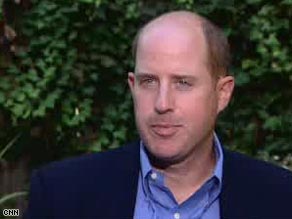
As I write, the polls are just beginning to close across the nation. I'm reading an extremely interesting blog entry that has a unique take on politics that I've never really heard before. The guy, Sean Malstrom, is some sort of part-time or former pollster, and he argues that McCain will win the election.
I guess you can always find people carrying water for a candidate that will say that his candidate will absolutely win, but I don't get that feel here. By the time you're reading this we'll know if he was right; even if he isn't correct I'll be really interested to find out if any of his points have some validity...
The Undecideds *have* decided: they have decided not to declare their choice to pollsters... days away from the election and there are like 11% undecideds? No! This is not normal...Really? In America, today? Wow...
Lying to pollsters is frequent and a necessity in Pennslyvania due to the unions. Many union bosses will call their members, posing as a ‘pollster’, and if the member gives the wrong [answer], a thug is sent to the house. The Teacher’s Union there has sent strict orders to vote for Obama “or else”.
With polling, the collective delusion is the belief that the product of polling is the data...The product of polls can [be] and often are the readers.I'd never heard it put that way--readers are the product of polls; that is, the polls are designed specifically to deliver minds of voters. Of course that's true, but I'd hadn't thought about it exactly that way. To hear this guy tell it, the main thrust of Obama's campaign is to produce polls and news stories talking about the "inevitability" of his victory. I don't know if he's right about that, but I have inarguably heard a lot of versions of that story...
Lots of other intriguing points; He thinks Palin has saved this ticket (which is the polar opposite of conventional wisdom at this point); that McCain will definitely win Pennsylvania, and that you can tell by the visits that the candidates are scheduling that their internal polling is completely at odds with the polls we all see. He goes into great detail on that last point.
While the election was originally a referendum on Obama, it has now become a referendum on socialism. It won’t matter if a minority group (like african americans) turn out in record numbers because everyone else is turning out in record numbers as well. The youth vote is not turning out as it never does. As James Carville says, “You know what we call candidates who rely on the youth vote? We call them ‘losers’.”Really, really interesting. We'll see if he's right.



.jpg)





